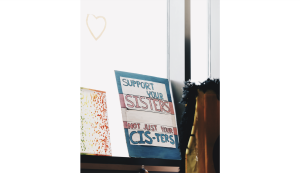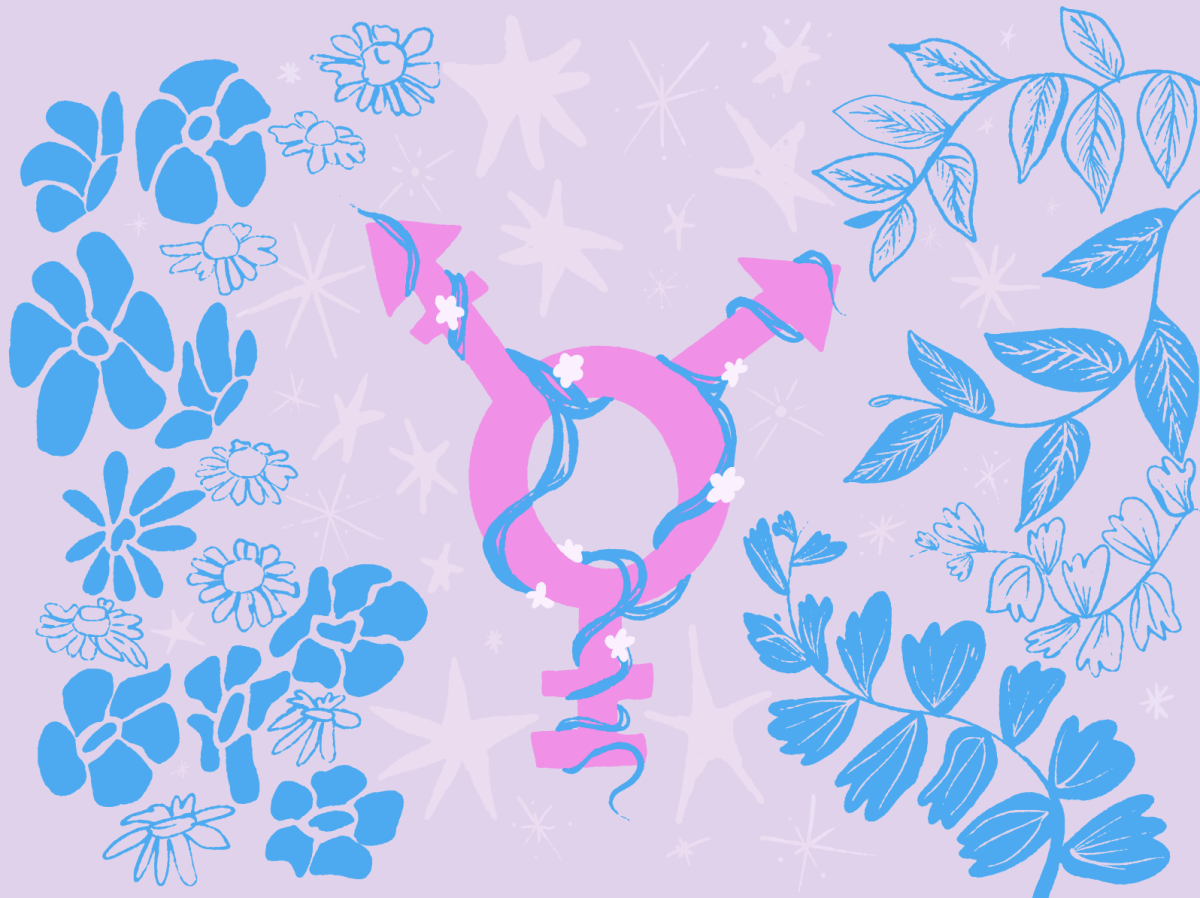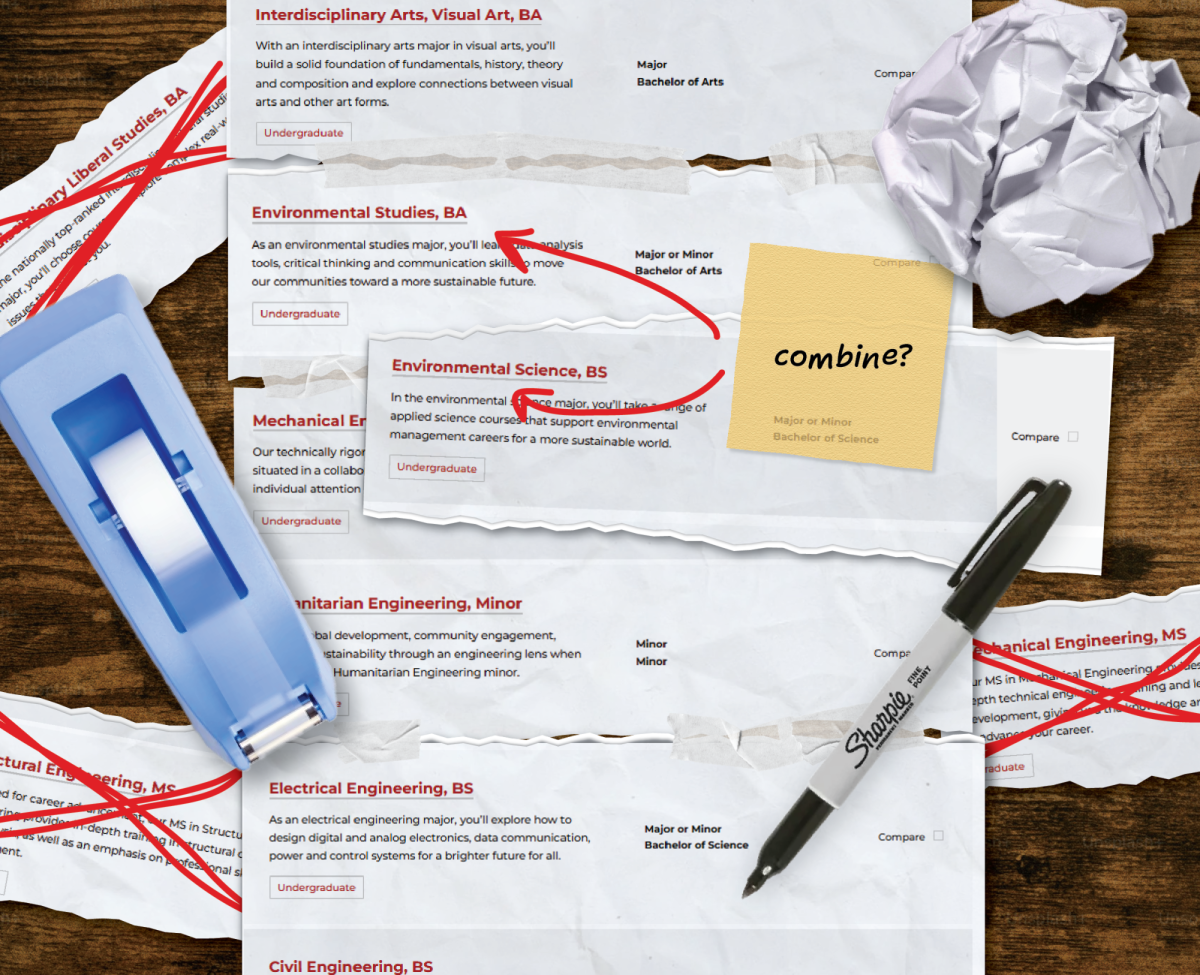Trans Awareness Week is a time of reflection, celebration and advocacy for transgender and gender non-conforming individuals and their allies. Occurring from Nov. 13 to Nov. 19, it provides a critical opportunity to highlight the lives, struggles and triumphs of the trans community preceding Trans Day of Remembrance Nov. 20.
Just as the lived experience of each trans individual is deeply unique and personal, so too is the meaning of Trans Awareness Week for the community it seeks to serve. Masee Anderson, a third-year criminal justice major, views Trans Awareness Week as an opportunity to increase the visibility of trans individuals like herself and to honor all the trans people who came before her.
“It brings a whole light on issues we face as a group of people, and it really just showcases us for a whole week. There’s workshops on how you can learn to be a better ally. There’s workshops on resources around that we can use, and it brings to light those people in past history that have been here,” Anderson said. “So, when people [say] like, ‘You’ve never existed before now.’ It’s like, no. We have existed for thousands of years, and it just shows that.”
Rhy Mack, a fourth-year creative writing major, sees Trans Awareness Week not as a presentation of transness to the cisgender population, but, rather, a commemoration of trans identity.

“Trans Awareness Week, to me, isn’t about making cis people aware of the fact that trans people exist. To me, it’s a week of celebration, remembrance, love and resistance. I find it liberating to see other trans people talking about how much they love their transness,” Mack wrote to The Spectator.
Trans Awareness Week was first recognized in 1999, with this year marking its 25th anniversary. The socio-political climate in which Trans Awareness Week has occurred has looked different throughout those 25 years. But in 2024, following the recent re-election of an openly transphobic and hateful Donald Trump, Trans Awareness Week is housed in a growingly hostile and regressive America.
“It’s the last Trans Awareness Week before, for lack of a better description, things change again. I had my gripes with the current administration, but I’ve felt safer than I did after 2016,” Mack wrote. “Trans people will not disappear on Inauguration Day. We will keep fighting for our rights and freedoms until everyone has them. The election caused a lot of grief and heartache that we’re still reeling from. This week, aside from celebrating, we should care for each other. Being trans isn’t easy, but it’s a gift to have a community of other trans people who know your fears.”
Trans Day of Remembrance concludes Trans Awareness Week with a day to honor and treasure the memory of trans individuals who have lost their lives to anti-trans violence. This year, Anderson believes that this day will be one to mourn the loss of trans individuals, as well as to mourn the anti-trans implications of the upcoming presidency.
“I feel like it’s gonna be a remembrance of, like, having opportunities that we probably will not have anymore. Like a remembrance of what once was,” Anderson said.
Several organizations at Seattle U hosted events to celebrate Trans Awareness Week. The Pride Link hosted back-to-back events Nov. 14 to 15, the first of these being an origami lotus flower folding event.
For their second event, the Pride Link hosted an educational gallery spotlighting trans activists and icons. Described by Pride Link workers as “laid back” and “chill,” the exhibition offered a welcoming learning environment for attendees. The gallery was open to students between 10 a.m. to 3 p.m.
The gallery featured a large poster board and a stack of flyers for attendees to take home to learn more. The flyers spotlighted Pauli Murray, an activist whose work influenced the civil rights movement and improved legal gender protections. The flyers also included QR codes for informational videos and listed several current prominent trans activists.
Hannah Mae Cox, a second-year social work major who works in the Pride Link, helped set up the gallery.
“We wanted to showcase different figures in queer history that have fought for trans and queer liberation,” Cox said. “[We highlighted] key figures, both in the past, but also current activists who are fighting for trans rights and trans lives.”
Nov. 16 saw campus organizations collaborate to celebrate Trans Awareness Week; MOSAIC and UREC. The two groups held an open gym event from 8 to 9 a.m., hosted at the Eisiminger Fitness Center.
Third-year Finance Major Max Winger helped out with the event as a trainer. While he says UREC didn’t get many visitors during the session, he was ready to assist anyone who came in.
“For today, [our job] was just to float around and help people that had questions that may have not been to the gym before, to help them with any exercises, show off any pieces of equipment they have questions with, really be here as a resource to help them have a good experience,” Winger stated.
Trans Awareness Week was capped off with a vigil Wednesday, Nov. 20 to honor Trans Day of Remembrance. The event, which was organized by Campus Ministry and MOSAIC, was held in front of the Chapel of St. Ignatius between 2 and 3 p.m.
Fourth-year Political Science and Legal Studies Major Maileen Cardenas is the student campus minister for social justice at Campus Ministry. Cardenas was one of three featured speakers at the vigil and helped plan the event.
“As a member of the queer community, Trans Awareness Week is so important. We should always be educating ourselves on the issues and violence that marginalized communities face,” Cardenas said. “I hope [the vigil is] a call to action for those who feel like they want to make change and bring more awareness to these issues.”

After the speakers finished giving their speech, they read out loud the names of 48 trans people who lost their lives this past year. Between each name, the crowd chanted “Today, we remember.” At the end of the vigil, attendees pushed flowers into the reflection pool while the chapel’s bell rang 48 times, once for each name.
Annarose Jowenson, the campus minister for social justice, also helped organize the gathering. Jowenson helps plan the vigil every year, and said that a key part of arranging it was researching the names of the 48 people who lost their lives through the Remembering Our Dead project.
“We use the [HRC, which] is a database where folks and communities can self-report the names of the deceased,” Jowenson said. “We know that is by no means exhaustive, but it is a globally known organization that collects these names.”
With the vigil marking the end of Trans Awareness Week at Seattle U, Anderson believes that there are people and departments on campus that should be doing more.
“I would like an email from President Eduardo to be like, ‘Guys, happy Trans Day of Awareness Vigil Week.’ I would like the women and gender studies department to do a little poster, little flyers, like, ‘these are notable [trans] people,’” Anderson said. “I’d like the colleges: the College of Arts and Sciences, the Business College, Science and Engineering, to do a mosaic or a poster of [trans] people in our past who’ve been notable. I’d like it to be more of a recognized thing around campus.”
For allies of the trans community who are looking to provide support during these particularly politically turbulent times, Rhy Mack offered his advice.
“Listen to trans people, sign petitions, donate to fundraisers if you can, and keep voting.”
While Trans Awareness Week serves as a designated period of time in which to reflect and advocate, the work does not end when the week does. With Trump’s presidency promising a devastating loss of rights for trans individuals, the need for action and community is ever more pressing.
As we move forward, it is crucial that we continue to stand in solidarity, amplify trans voices and push for policy changes that protect and empower the trans community year-round.














